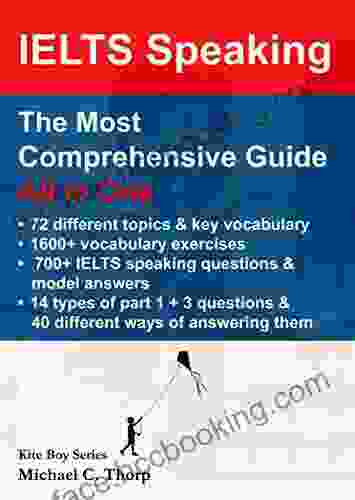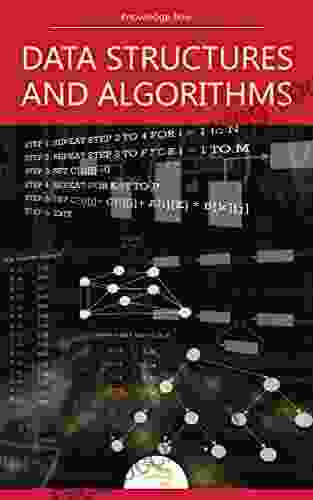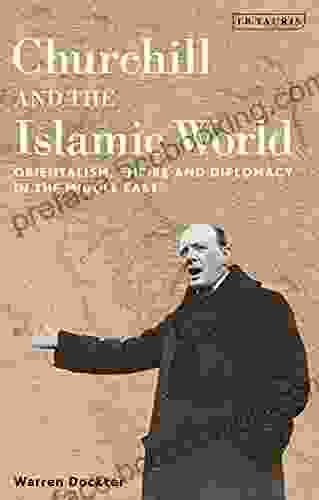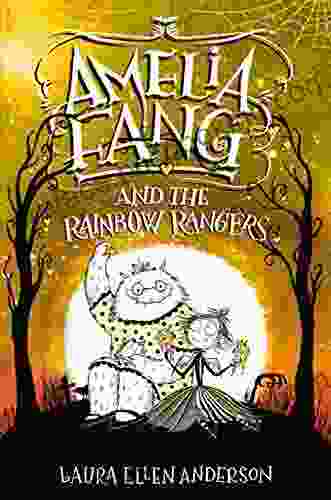Orientalism: Empire and Diplomacy in the Middle East

Edward Said's Orientalism is a seminal work in the field of postcolonial studies. Published in 1978, the book argues that Orientalism is not simply a set of ideas about the East, but a powerful discourse that has shaped the way the West has understood and interacted with the Middle East for centuries.
Said defines Orientalism as "a way of seeing that imagines the Orient as a place of mystery, exoticism, and backwardness." He argues that this view of the East has been used to justify Western imperialism and colonialism.
Said's book is divided into three parts. The first part explores the history of Orientalism, from its roots in the European Renaissance to its modern manifestations. The second part examines the ways in which Orientalism has been used to shape Western policy towards the Middle East. The third part offers a critique of Orientalism and suggests ways to move beyond it.
4.7 out of 5
| Language | : | English |
| File size | : | 2750 KB |
| Text-to-Speech | : | Enabled |
| Screen Reader | : | Supported |
| Enhanced typesetting | : | Enabled |
| Word Wise | : | Enabled |
| Print length | : | 392 pages |
Orientalism has been a highly influential work, and it has helped to shape our understanding of the relationship between the West and the Middle East. Said's book has also been criticized for its essentialism and its failure to account for the diversity of the Middle East. However, there is no doubt that Orientalism is a major work that has had a profound impact on the field of postcolonial studies.
The roots of Orientalism can be traced back to the European Renaissance. During this period, European scholars began to study the cultures and languages of the East. This study was often motivated by a desire to convert Muslims to Christianity.
In the 18th and 19th centuries, Orientalism became increasingly secular. European scholars began to study the East for its own sake, and they developed a fascination with its exotic customs and beliefs. This fascination was often accompanied by a sense of superiority, and Europeans began to see themselves as more civilized than the people of the East.
The rise of Orientalism coincided with the rise of European imperialism. European powers began to colonize the Middle East, and they used Orientalist ideas to justify their rule. Orientalists argued that the people of the East were not capable of self-government, and that they needed to be ruled by Europeans.
Orientalism has had a profound impact on the way the West has understood and interacted with the Middle East. It has shaped Western policy towards the region, and it has influenced Western literature, art, and music.
Orientalism has been used to justify a wide range of Western policies towards the Middle East. These policies have included:
- Colonialism: Orientalism was used to justify the European colonization of the Middle East. Orientalists argued that the people of the East were not capable of self-government, and that they needed to be ruled by Europeans.
- Imperialism: Orientalism was used to justify Western imperialism in the Middle East. Imperialists argued that the people of the East needed to be brought into the modern world, and that this could only be done through Western intervention.
- War: Orientalism has been used to justify Western wars in the Middle East. Warmongers argue that the people of the East are a threat to the West, and that they need to be defeated.
Orientalism has also been used to shape Western culture. It has influenced Western literature, art, and music. For example, the Orientalist style of painting depicts the East as a place of mystery and exoticism.
Said's critique of Orientalism is based on two main arguments. First, he argues that Orientalism is essentialist. That is, it assumes that the East is a fixed and unchanging entity. Said argues that this view of the East is inaccurate, and that the East is actually a complex and diverse region.
Second, Said argues that Orientalism is a form of cultural domination. That is, it is used to assert Western superiority over the East. Said argues that this is a harmful and unjust way of thinking, and that it has led to a great deal of violence and suffering in the Middle East.
Said's critique of Orientalism has been highly influential, and it has helped to change the way we think about the relationship between the West and the Middle East. However, there is still much work to be done to overcome the legacy of Orientalism.
Said offers a number of ways to move beyond Orientalism. These include:
- Education: Said argues that it is important to educate people about the dangers of Orientalism. He believes that this will help to create a more just and equitable world.
- Dialogue: Said argues that it is important to encourage dialogue between the West and the Middle East. He believes that this will help to build bridges between the two cultures.
- Solidarity: Said argues that it is important to build solidarity between the West and the Middle East. He believes that this will help to create a more just and peaceful world.
Said's work has had a profound impact on our understanding of the relationship between the West and the Middle East. His critique of Orientalism has helped to change the way we think about the region, and it has inspired a new generation of scholars to work towards a more just and equitable world.
4.7 out of 5
| Language | : | English |
| File size | : | 2750 KB |
| Text-to-Speech | : | Enabled |
| Screen Reader | : | Supported |
| Enhanced typesetting | : | Enabled |
| Word Wise | : | Enabled |
| Print length | : | 392 pages |
Do you want to contribute by writing guest posts on this blog?
Please contact us and send us a resume of previous articles that you have written.
 Book
Book Novel
Novel Page
Page Chapter
Chapter Text
Text Story
Story Genre
Genre Reader
Reader Library
Library Paperback
Paperback E-book
E-book Magazine
Magazine Newspaper
Newspaper Paragraph
Paragraph Sentence
Sentence Bookmark
Bookmark Shelf
Shelf Glossary
Glossary Bibliography
Bibliography Foreword
Foreword Preface
Preface Synopsis
Synopsis Annotation
Annotation Footnote
Footnote Manuscript
Manuscript Scroll
Scroll Codex
Codex Tome
Tome Bestseller
Bestseller Classics
Classics Library card
Library card Narrative
Narrative Biography
Biography Autobiography
Autobiography Memoir
Memoir Reference
Reference Encyclopedia
Encyclopedia Maisy Card
Maisy Card Richard Marcus
Richard Marcus Michael Bonilla
Michael Bonilla Gwyneth Snow
Gwyneth Snow Jeanne Ellis Ormrod
Jeanne Ellis Ormrod Hadley Mannings
Hadley Mannings Paul Carus
Paul Carus Glenville Kedie
Glenville Kedie Gloria Mattioni
Gloria Mattioni Ross Hamilton
Ross Hamilton Osamu Tezuka
Osamu Tezuka Robison Wells
Robison Wells Guisela Latorre
Guisela Latorre Gregory Kauffman
Gregory Kauffman Heather Kirk
Heather Kirk Grace Elizabeth Hale
Grace Elizabeth Hale Richard S Dunn
Richard S Dunn Glendy Vanderah
Glendy Vanderah Lucas Gates
Lucas Gates Terah Kathryn Collins
Terah Kathryn Collins
Light bulbAdvertise smarter! Our strategic ad space ensures maximum exposure. Reserve your spot today!
 Quincy WardFollow ·4.3k
Quincy WardFollow ·4.3k Harrison BlairFollow ·12.5k
Harrison BlairFollow ·12.5k Eugene PowellFollow ·6.3k
Eugene PowellFollow ·6.3k Hugo CoxFollow ·2.6k
Hugo CoxFollow ·2.6k Raymond ChandlerFollow ·19k
Raymond ChandlerFollow ·19k Francis TurnerFollow ·11.6k
Francis TurnerFollow ·11.6k Mark MitchellFollow ·16.9k
Mark MitchellFollow ·16.9k Ernest ClineFollow ·15.3k
Ernest ClineFollow ·15.3k

 Brady Mitchell
Brady MitchellMaster IELTS Speaking: The Ultimate Guide to Success
Kickstart Your IELTS...

 Branden Simmons
Branden SimmonsBack Spin: A Thrilling Myron Bolitar Novel
Get ready to embark on a...

 Marc Foster
Marc FosterData Structures and Algorithms: A Comprehensive Guide to...
In the ever-evolving...

 Jeff Foster
Jeff FosterUnveiling the Basics of Microbiology: A Comprehensive...
The world of...

 J.D. Salinger
J.D. SalingerHold Tight Suspense Thriller: A Gripping Page-Turner That...
Are you ready for a suspense thriller that...
4.7 out of 5
| Language | : | English |
| File size | : | 2750 KB |
| Text-to-Speech | : | Enabled |
| Screen Reader | : | Supported |
| Enhanced typesetting | : | Enabled |
| Word Wise | : | Enabled |
| Print length | : | 392 pages |














